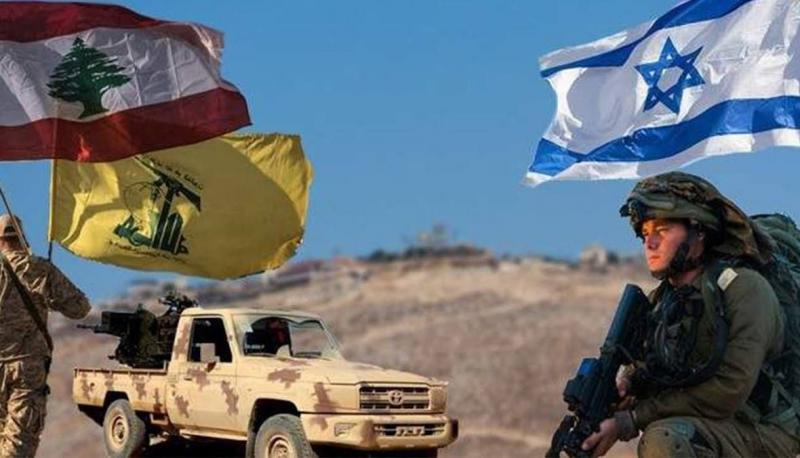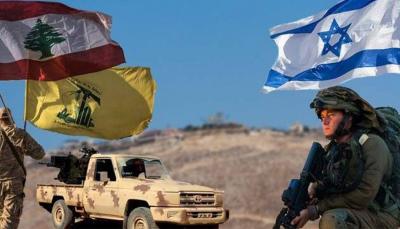The conflict between Israel and Hezbollah is taking a dangerous turn after more than eight months of ongoing fighting since the outbreak of war in Gaza, with both sides indicating their readiness for a larger confrontation. The U.S. State Department stated yesterday that Washington does not want a full-scale war and is attempting to pursue a diplomatic solution, adding that Israel has the right to defend itself against Hezbollah, which is allied with Iran. However, political pressure in Israel is increasing to take tougher actions against the armed group.
**Why are they fighting?**
Hezbollah began exchanging fire with Israel on October 8, the day after Hamas launched an attack on residential areas in southern Israel, igniting the Gaza war. Hezbollah, a Hamas ally, claims that its attacks aim to support Palestinians being bombed by Israel in the enclave. The exchanges of fire between Hezbollah and Israel are part of the regional repercussions of the Gaza war, which has drawn Iranian-backed fighters across the region. Hezbollah is widely considered the strongest element in the Iran-supported network known as the Axis of Resistance. Despite its connection to the Gaza conflict, it has its own driving forces. Israel and Hezbollah have fought several wars, the most recent being in 2006. Israel has long considered Hezbollah the biggest threat on its borders and is deeply concerned about its expanding arsenal and foothold in Syria. Hezbollah's ideology is largely defined by its conflict with Israel; the Iranian Revolutionary Guard established the group in 1982 to fight Israeli forces that invaded Lebanon that year, leading to a war that resulted in Israel's withdrawal from southern Lebanon in 2000.
**What is the impact so far?**
The conflict has already negatively affected both sides, forcing tens of thousands of residents to flee their homes on both sides of the border. Israeli airstrikes have targeted areas where Hezbollah operates in southern Lebanon and bombed the Beqaa Valley near the Syrian border. Israel has also occasionally struck other locations, notably killing a senior Hamas leader in the Lebanese capital Beirut on January 2. The Israeli strikes have resulted in around 300 Hezbollah fighters killed in Lebanon, surpassing the losses the group incurred in 2006. In contrast, Israel reports that attacks from Lebanon have resulted in the deaths of 18 Israeli soldiers and 10 civilians. In Israel, the mass displacement of people has become a significant political issue, with officials hoping that residents can return home before the school year starts on September 1.
**How could the situation worsen?**
The situation could deteriorate significantly. However, despite the intensity of the fighting, the confrontation remains relatively containable. Israeli Prime Minister Benjamin Netanyahu stated on Wednesday that Israel is prepared to take strong action in the north and warned in December that Beirut would become "another Gaza" if Hezbollah were to start a full-scale war. Hezbollah's Deputy Secretary-General, Naeem Qassem, stated yesterday that the group does not seek to widen the conflict but is also ready to engage in any war imposed on it. In an interview with Al Jazeera, he added that Hezbollah has used only a small part of its capabilities, and any Israeli move to escalate the conflict would be met with destruction and displacement in Israel. Both sides have suffered significant damage in past wars. Israeli strikes in 2006 leveled large areas of Hezbollah-controlled suburbs in southern Beirut, destroyed the Beirut airport, and bombed roads and bridges and other infrastructure. Nearly a million people fled their homes in Lebanon, while 300,000 people in Israel evacuated due to Hezbollah rockets, with approximately 2,000 homes destroyed. Hezbollah possesses a much larger arsenal of weapons than it did in 2006, including rockets that the group claims can hit all parts of Israel. Israeli forces have invaded Lebanon multiple times, reaching Beirut during the 1982 invasion aimed at crushing Palestinian militants based there.
**Is it possible to avoid escalation?**
Washington and Paris are working to contain the escalation. U.S. State Department spokesperson Matthew Miller stated yesterday, “We have heard Israeli leaders say they prefer a diplomatic solution, which is of course the solution we prefer as well and are working to achieve.” The United States designates Hezbollah as a "terrorist group." The group has indicated its openness to reaching an agreement beneficial to Lebanon but has stated that discussions cannot start until Israel halts its assault on Gaza, which mediators have yet to achieve. Israel has also indicated its openness to a diplomatic resolution that restores security to the north while preparing for a military operation to achieve the same goal. Netanyahu stated on Wednesday, "Anyone who thinks they can harm us and that we will stand idly by is making a grave mistake. We will restore security to the north one way or another." U.S. official Amos Hochstein mediated a challenging diplomatic agreement between Lebanon and Israel in 2022 over their disputed maritime borders. Hochstein stated on May 30 that he does not expect peace between Hezbollah and Israel, but a series of understandings could resolve some of the root causes of the conflict and may lead to recognized borders between Lebanon and Israel. A French proposal presented to Beirut in February included the withdrawal of Hezbollah's elite units 10 kilometers from the border and negotiations aimed at settling disputes regarding land borders.




